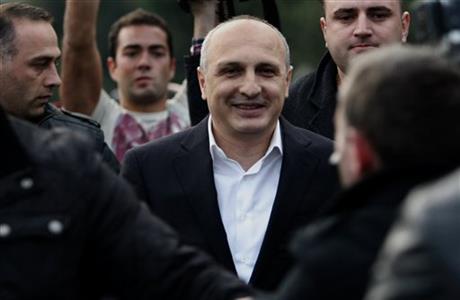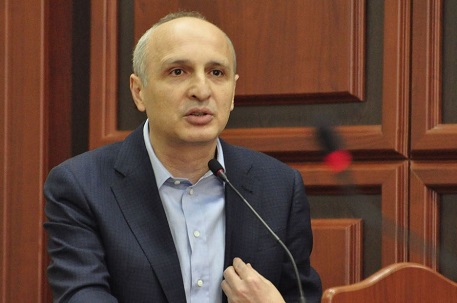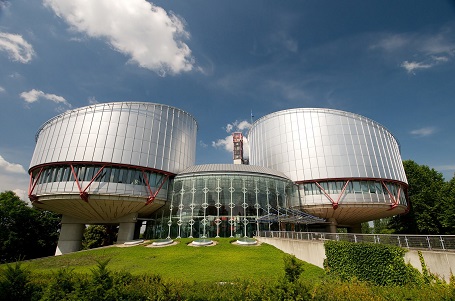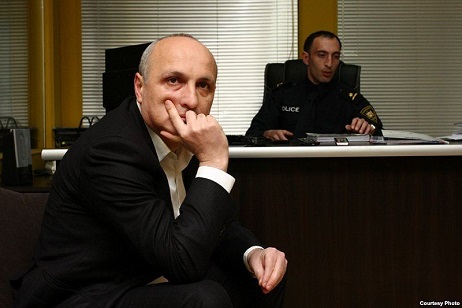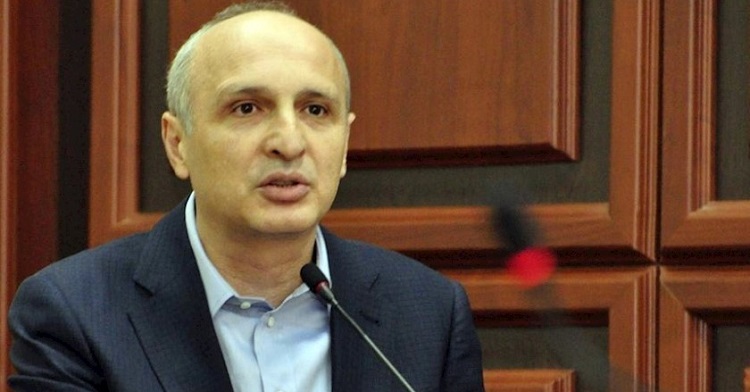European Court to review ex-PM Merabishvili’s case on March 8
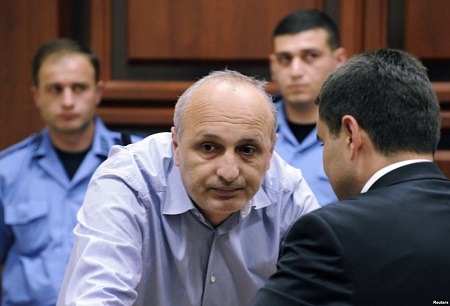
The European Court of Human Rights (ECHR) will hold a hearing for the case of former Georgian Prime Minister Ivane Merabishvili on March 8.
The hearing was scheduled after the Georgian Government appealed an earlier decision made in his case.
Case background
The ECHR dismissed Merabishvili’s complaint in June of 2016 when he accused the Government of Georgia of holding him in illegal pre-trial detention.
However, the ECHR did question the legality of one episode during Merabishvili’s pre-trial detention, when he claimed that he had been unlawfully taken out of his prison cell on December 14, 2013, and was taken to a secret location.
Merabishvili claimed that then-Chief Prosecutor Otar Partskhaladze asked him to help in the investigation into the unsolved death of ex-PM Zurab Zhvania, and to also provide information about ex-president Mikheil Saakashvili's bank accounts. Merabishvili was told his conditions in prison would deteriorate and his friends would be arrested should he refuse to cooperate.
These allegations made by Merabishvili were denied by the Government.
After the ECHR announced its decision on June 14, Georgia’s Ministry of Justice appealed the court’s decision to call into question the legality of Merabishvili’s transfer to a secret location.
The Georgian Ministry of Justice requested that the ECHR reverse the ruling, given what they claimed was a lack of evidence to prove that the case had ever taken place.
The ECHR agreed to reexamine the case.
What does the Georgian Justice Minister expect on March 8?
Justice Minister Thea Tsulukiani talked about her expectations regarding the March 8 hearing to local media earlier this week.
Tsulukiani said that it is rare for the ECHR’s Grand Chamber to accept the complaints of national governments. She mentioned that around the time the complaint was lodged, 27 other countries had filed cases with the court, but the ECHR accepted to review only two of them, one of which was Georgia’s.
"So this already was a big legal victory for us”, Tsulukiani said.
She added that the Georgian Chief Prosecutor’s Office had stopped the investigation into this particular episode of Merabshvili’s case in February of 2017 because "a comprehensive investigation had shown that there were no signs of a crime”.
Tsulukiani says that the government side has "very solid arguments” and expects a decision will be made in its favour.
She added that even if the ECHR were to make a decision in favour of Merabishvili, this would not signify Merabishvili’s release from prison.
"Even if the ECHR says that there was a violation in the Merabishvili case, there is no way this will result in Merabishvili’s earlier release. In this case the Georgian side might only be demanded to cover legal costs, such as lawyers’ fees”, the minister said.
She added that the only "surprise” in this story was that Georgia’s Public Defender Ucha Nanuashvili has decided to take the witness stand for Merabishvili.
"He sent his testimony in favour of Merabishvili to Strasbourg [ECHR]. The Public Defender supports him and serves as a witness in favour of him, which is, let’s say, quite unprecedented, but we have a lot of arguments and even in the presence of such a witness, we can prove the truth”, she said.
Who is the Georgian national judge at ECHR?
A petition requesting Georgia’s national judge at the ECHR be dismissed from the case has gained momentum recently – supporters of the petition believe that judge Nona Tsotsoria will be unable to remain unbiased due to her earlier ties to Merabishvili’s team.
Tstsoria was the former assistant to ex-Chief Prosecutor of Georgia Zurab Adeishvili, who in turn had also served as Justice Minister of Georgia. Adeishvili in turn had close ties with Merabishvili, who was one of the co-leaders of the United National Movement government.
However, the participation of a judge from the country whose case is being heard is mandatory.
What are the charges against Merabishvili?
Merabishvili served as Prime Minister for a few months from July-October of 2012, and was the Interior Minister of Georgia under the government of Mikheil Saakashvili.
However, he was arrested in May of 2013 after the ruling Georgian Dream (GD) coalition defeated the United National Movement (UNM) in the 2012 parliamentary elections.
Merabishvili was charged with faking documents, misspending budgetary funds and buying votes. He was also charged with abuse of power in connection with three different notorious cases but he denied all charges, saying they were all politically motivated.
Kutaisi City Court in western Georgia ordered Merabishvili’s pre-trial detention in May 2013 and his motion for release was dismissed four months later.
Merabishvili was found guilty and sentenced to four years and six months in prison in February of 2014 by Kutaisi City Court.
Merabishvili claimed his pre-trial detention served the purpose of excluding him from being involved in the country’s political life, as he was appointed Secretary General of UNM after the 2012 Parliamentary Elections and he intended to participate in the 2013 Presidential Elections.
When will the ECHR release a verdict?
After the March 8 hearing, the Court will begin its deliberations which will be held in private. It is expected that the written verdict will be delivered within several weeks to months.
 Tweet
Tweet  Share
Share
